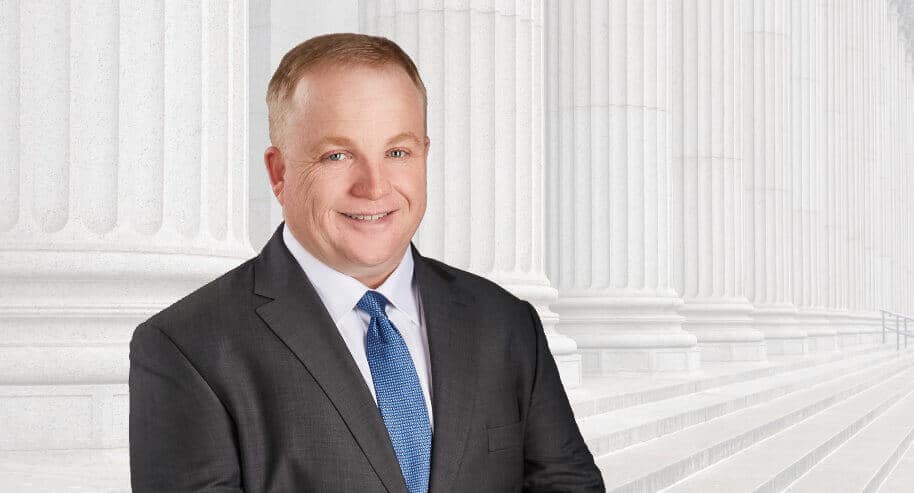
When you’re adopting a child, you want your family’s transition into a new lifestyle to go smoothly. However, all your hard work and planning could be for naught if you don’t have the right legal foundation in place.
North Carolina laws cover a wide range of requirements, including the documents you must file and court appearances you must attend. These statutes are complex, and the court’s procedural rules contain numerous opportunities to make mistakes. Without the help of an experienced Smithfield adoption lawyer, you risk delays in welcoming a new member into your family.
Smithfield family attorney Jonathan Breeden knows his way around state adoption laws. Even an occasion as rewarding as adoption can include pitfalls along the way if you don’t strictly comply with the legal requirements, so it’s critical to have a knowledgeable adoption attorney on your side. Attorney Breeden will assist you in navigating these complicated statutes and rules.
Contact Breeden Law Office at (919) 300-7290 to schedule a case consultation.
State law details the legal requirements and general process of adoption, while county court rules contain the more specific procedural rules.
Under both sets of regulations, there are specific details and terminology that can be daunting to adoptive parents. Because adoption falls under the category of family law, it’s also very personal. You may get the sense that the statues are prying into your private matters, but they’re intended to protect everyone involved in the process.
You can reduce your concerns and uncertainty by working with a Smithfield adoption lawyer. Adoption attorneys understand complex legal language and definitions, and they know how the laws apply to various scenarios.
Generally, a person at least 18 years or older is eligible to adopt.There are, however, some exceptions:
There are no limitations on who is eligible to be adopted under North Carolina law, though the consent requirements described below may apply.
The biological mother of the potential adoptee must consent to adoption, and consent of the child is necessary for adoptees 12 years or older.
The rules regarding the supposed biological father vary depending on the circumstance. Consent is required when the man:
There are also consent rules for adoption for married couples if only one of the spouses intends to adopt. The consent of the other spouse must accompany a solo petition for adoption.
If you have questions about consent and eligibility requirements, contact a Smithfield adoption lawyer today for help.
When you complete the adoption process and enter the necessary court orders, you are the legal parent of the adoptee. You have legal and physical custody, as well as:
North Carolina’s laws cover many different adoption scenarios, so having the help of a Smithfield adoption lawyer is essential. You can trust Jonathan Breeden to navigate the legal process, including filing the proper forms, gathering supporting documents, and attending required court hearings. Still, you may find it useful to know what to expect.
Both adoptive and biological parents may have privacy interests they want to protect. A closed adoption enables the identity of the birth parents to remain confidential, so the child can only access records for medical purposes. In an open adoption, there is free communication between all parents and the child. For many adoptions taking place within the family, an open adoption is appropriate.
You may choose to go the agency route to connect you with a child in need of a home. There are two types of agency situations you may encounter:
You may opt to take the independent route if you already have some familial or other connection with the child, such as wanting to adopt your stepchild or a sibling. Many people assume the adoption process is easier when you avoid an agency, but the same statutory requirements and rules apply for independent adoptions.
With any type of adoption, errors in the process can be costly and put your family in jeopardy. When you work with a Smithfield adoption lawyer, you’re in a better position to achieve your adoption goals without delays or obstacles. A lawyer can advise you on:
The specifics of your adoption are unique to your situation, the potential adoptee, the involvement of an agency, and other factors. In general, there are a few key concepts you should understand.
You must first lay the groundwork before you intend to file for adoption, because proper documentation must support your petition. For example, you’ll need to submit:
Your next step in the adoption process is to file your adoption petition, supporting documents, and filing fees with the proper county court. This may be where you or the adoptive child resides, or where the agency has a legal place of business.
Besides the documents that you already obtained before filing, you’ll also need to include:
After you submit these documents, the court will schedule a hearing date within 90 days. You must then send notice of the proceedings to those individuals whose consent you couldn’t obtain when filing. If there are no disputes and you’ve provided all the necessary information, the court hearing will be a formality to finalize the adoption.
If anyone with legal standing contests the proceedings, you may need to go through a trial-like hearing.

You’re no doubt filled with excitement and joy when going through the adoption process, but your elation may quickly fade if you encounter legal hurdles and challenges along the way. By retaining an experienced legal advocate to guide you through adoption proceedings in North Carolina, your sole focus will be on welcoming a new member into your family. Though you can trust an adoption agency for certain aspects of the process, you should rely on a Smithfield adoption lawyer for help with the legalities of your situation.
Jonathan Breeden is a dedicated, attorney who puts your family first in adoption proceedings. To schedule an initial consultation of your case, contact Breeden Law Office today at (919) 300-7290.
Call Breeden Law Office today:
Call (919) 300-7290